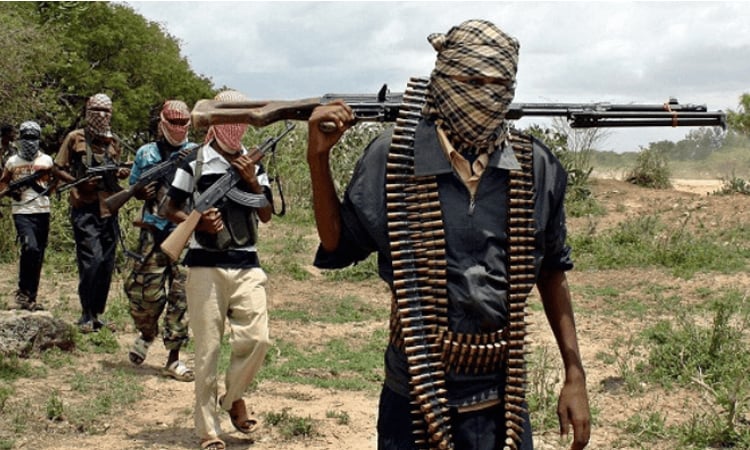The Kwara State Police Command has confirmed that suspected bandits attacked a parish of the Christ Apostolic Church (CAC) in the border-town of Eruku, Ekiti Local Government Area, on Tuesday evening, November 18, 2025. At least two people were killed and one injured in what authorities describe as a “barbaric” assault on worshippers and a frightening reminder of the growing insecurity that has gripped Nigeria’s border communities.
According to the police, the attack occurred at about 18:00 hours when gunshots erupted from the outskirts of the town. The DPO for Eruku, alongside police operatives and vigilante collaborators, responded swiftly, causing the hoodlums to flee into the bush.
According to the PUNCH online report, inside the church, Mr Aderemi was fatally shot. In a separate discovery, the corpse of Mr Tunde Asaba Ajayi was found in the bush. A vigilante, Segun Alaja, sustained gunshot injuries and was rushed to ECWA Hospital, Eruku for treatment. The Police Commissioner, Adekimi Ojo, commended the swift action of the security forces but stressed that more must be done: “security agencies will not relent until these hoodlums are totally decimated.”
Residents of Eruku and surrounding areas, however, paint a picture of frustration and fear. They say the community has been under repeated attack over the last three weeks, with distress calls to local and state governments generating little concrete response. One community leader, Mr Benjamin Ayeoribe, said: “We have begged the local and state governments for help, but nothing concrete has come. We are living in fear every day… We need federal help.”
Read Also: Bandits abduct 25 students in fresh Kebbi attack as Governor Idris calls for unity, prayers
Eyewitnesses recalled how vehicles were abandoned along the Ilorin, Kabba road as travellers fled into nearby bushes when the attackers struck. “They came around 6:30pm and started shooting. Two people were killed instantly, and we don’t even know how many were taken; they are still shooting — you can hear it,” said one frightened traveller.
At the national level, the attack in Kwara cannot be seen in isolation. Earlier this month, kidnappers abducted schoolgirls in Maga, Kebbi State, further highlighting the government’s ongoing struggle to stem the tide of violence against the young and vulnerable.
Moreover, the international consequences of Nigeria’s security challenges are growing increasingly severe. The U.S. President Donald Trump recently publicly threatened that the United States would “immediately stop all aid and assistance to Nigeria” if the killings of Christians continue unabated. He further announced that the United States Department of Defense had been ordered to prepare for possible military action, warning that the operation could be “fast, vicious, and sweet, just like the terrorist thugs attack our CHERISHED Christians!” His comments branded Nigeria as a “now disgraced country” and suggested U.S. forces might intervene “guns-a-blazing” to wipe out Islamist terrorists.
This dual pressure, from domestic insurgents and international actors exposes the severity of Nigeria’s security crisis. The attack in Eruku underscores how remote communities are being caught in a vicious cycle of violence, with state response still faltering. For residents, worship has become a risk; church services once held in peace now end in flight and fear.
The police affirmed that the perpetrators fled via bush tracks, underlining the challenge of policing border communities where terrain and jurisdiction favour bandits. Vigilantes and local hunters, while present, remain under-resourced and reactive rather than preventive. The residents’ urgent appeals for federal intervention point to the limits of state and local responses. The statement by the command showed official awareness, yet the repeated calls for help demonstrate that enforcement remains uneven.
For the people of Eruku, the cost of inaction is the loss of faith in the promise of protection and an erosion of daily normalcy. As the night of November 18 will be remembered for gunshots at prayer, deaths and kidnapped souls, the question becomes: how long before more lives are caught in the crossfire of bandits, and how much longer will the state allow terror to dictate worship?



